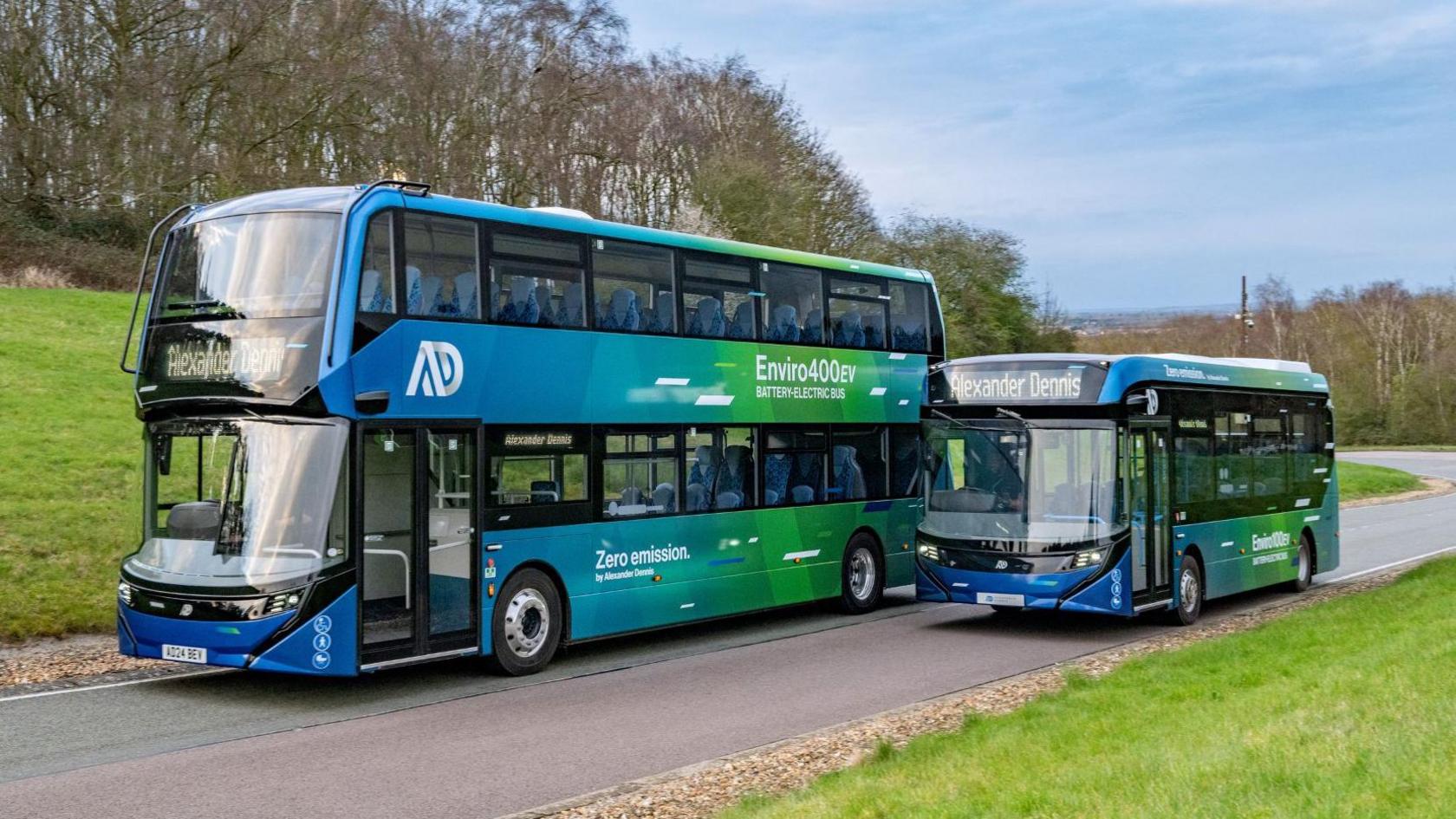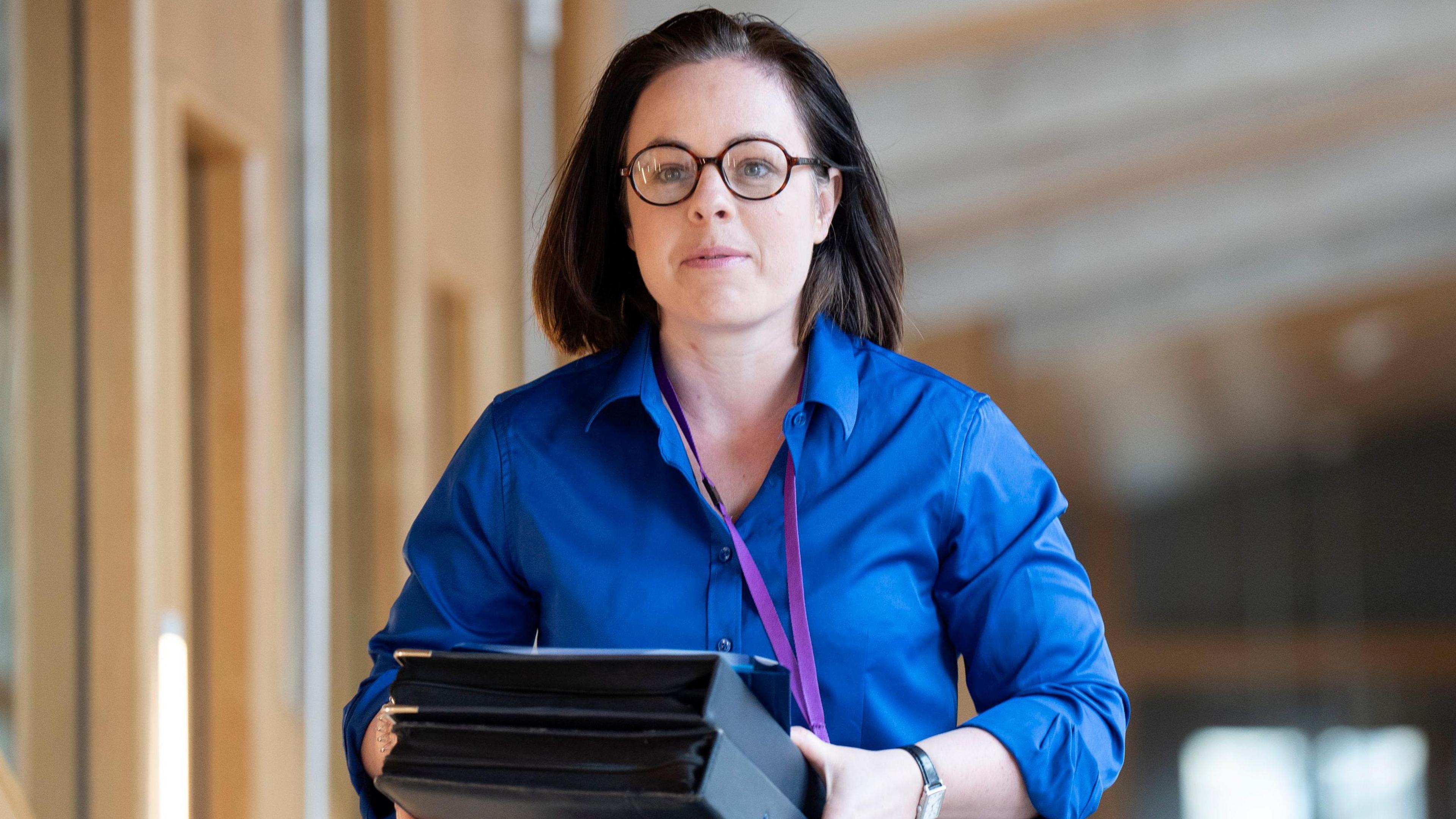Alexander Dennis workers back furlough as rescue efforts continue

MSP's have heard evidence from trade unions over the closure of bus manufacturers Alexander Dennis
- Published
Workers at the troubled Alexander Dennis bus factory in Falkirk have backed a last resort furlough scheme, while efforts are made to save their jobs.
The company set out plans in June to close the plant with the loss of 400 jobs and move production to Yorkshire.
Managers say they still need to find orders for at least 300 buses a year to safeguard production in Falkirk over the long term.
Although the Scottish government has committed to funding a furlough scheme, it says it is working "intensively" to secure the plant's future and expand the market for electric buses.
Deputy First Minister Kate Forbes said: "No further details can be provided at this time due to commercial sensitivity."
A vote among members of the Unite union returned an 85% result in favour of the furlough scheme.
Unite said the primary focus of the ballot was a modernisation package involving changes to terms and conditions with the company to place it on a more sustainable basis.
Pat Egan, Unite industrial officer, said: "The priority now is to deliver new orders to Alexander Dennis which will ensure that we retain a green manufacturing capacity in Scotland.
"Unite has given our support to a time-limited furlough scheme backed by government which would come into effect if there were time gaps between new orders and production starting at Falkirk and Larbert."
The GMB union has still to announce the results of its vote, but it is expected to show similar support.
The scheme was first highlighted by Finance Secretary Shona Robison in July, though details are still scarce.
It is not clear how much it would pay workers, nor how long it would be in place for.
But the Scottish government said it would allow them time to secure a pipeline for new orders.
Under the original plans to close the Falkirk and Larbert sites, Alexander Dennis would consolidate its operations at a single location in Scarborough.
In June, the company's managing director, Paul Davies, told MSPs it would need to win contracts for 70 new buses this year and 300 next year to keep its Scottish operations running.
He said the Scarborough facility was capable of producing about 1,200 buses a year.
He also blamed increased competition from electric bus manufacturers in China for the decision.
The company said Chinese firms now have about 35% of the UK market.
A spokesperson added: "Our focus remains on ensuring our people are supported during our consultation process as we continue to work collaboratively to explore all possible options.
"We will endeavour to share any news as it becomes available."

This vote by the workforce buys some time - but it doesn't save the plant.
The underlying problem remains.
Alexander Dennis faces huge pressure from international players, especially China, in the zero-emission bus market.
In short, it's losing market share.
So it's merging two factories into one, shedding jobs in the process.
For now, the company is making no promises on the future of the Falkirk factory.
Bosses say they need a pipeline of work - that's at least 300 buses a year - if they're to save it.
So at worst, the furlough scene may just delay the inevitable.
But political pressure to save this century-old factory is building.
And with a Scottish election around the corner, minds are focussed of how to put work their way.
Will "Buy Scottish" become the order of the day -- even if these buses cost a bit more than their rivals?
Related topics
- Published28 July

- Published25 June
